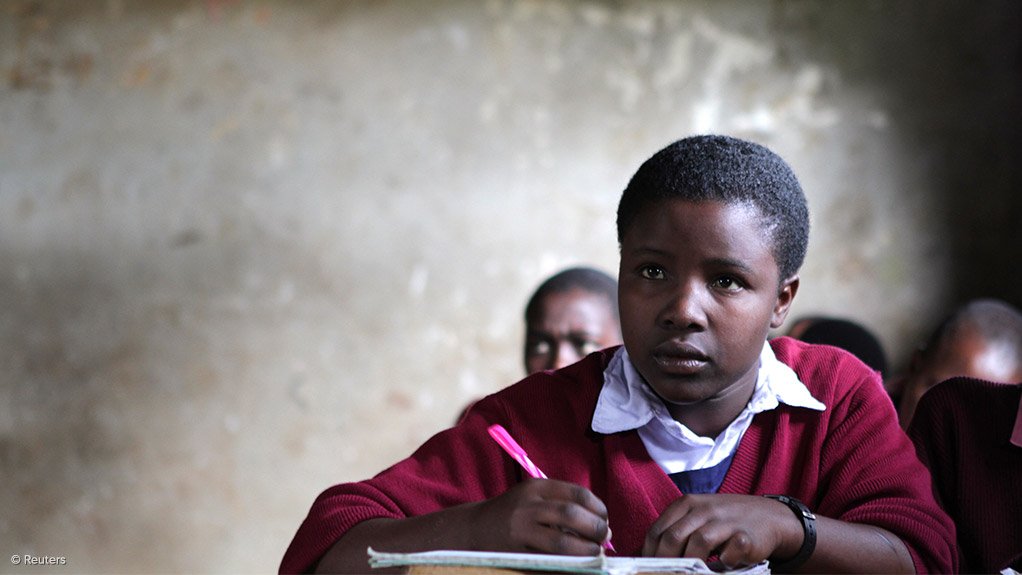/ MEDIA STATEMENT / The content on this page is not written by Polity.org.za, but is supplied by third parties. This content does not constitute news reporting by Polity.org.za.
School functionality visits conducted by KwaZulu-Natal Legislature Members during the past two days, have revealed that outstanding issues far outweigh progress with the triple threat of social ills, dire infrastructure challenges and budget-related deficiencies hanging over learners.
The visits have revealed, amongst others, a drunk person in charge of one school, ongoing drug problems with the strong smell of dagga at another school, and unaddressed allegations of learner abuse – including rape – in the Nkandla area with Education HOD, Nkosinathi Ngcobo, confirming that the district has the third highest rape statistics in the entire country.
Meanwhile, at Prince Zithume, the Democratic Alliance (DA) found a school with just nine learners. When we were there earlier in the year, there were only 13 learners. This school is being run by a co-ordinator – a position unheard of within Education - who was absent. A man who was apparently in charge was drunk on the day of our visit.
The school has not had a principal for 18 months, there is no deputy principal and absenteeism is high amongst the existing teaching staff. To add to this, the school has been allocated two surplus educators. This while there are severe teacher shortages within KZN’s functional schools. The school has even been earmarked for a borehole which is astounding given that it is non-viable and needs to be closed down.
The DA is aware of at least two other schools in the province where a similar situation exists and will be conducting its own oversights shortly. In the interim, we urge the MEC to ensure a full investigation is conducted at this school and a way forward found.
At Kingsburgh Primary School the DA was made aware of a multitude of social ills including teenage pregnancy. While KZN’s Department of Health (DoH) has been brought in, there has been no sign of KZN’s Department of Social Development (DSD) to date. The absence of both the School Governing Body (SGB) and the local ANC ward councillor during the oversight also speaks volumes in terms of a lack of interest in the plight of learners.
The oversights also showed that infrastructure challenges continue to plague KZN’s schools, particularly after the April floods. According to officials, 96 public schools in the Pinetown district – of a total of 503 - were damaged during the floods. This while only 18 have been repaired to date.
The delegation was told that the balance of the schools will not be repaired due to a lack of funds and that KZN Department of Public Works projects in the province are on hold, except those where work has already begun.
This spells disaster for thousands of learners who are already severely compromised when it comes to their learning environments. Other infrastructure challenges identified during the oversights include;
· A decision to stop providing mobile classrooms and toilets, with evidence of some toilets already having been removed at certain schools
· Copper pipe theft and a school being told by SAPS that a case cannot be opened as it is a ‘trivial matter’
· An entire Nkandla-based school – Ngudwini Primary - being reliant on two Jojo tanks
· Intermittent water supply at two Tongaat schools as a result of the floods. At Bonanisani Primary School in Ntuzuma there is only water during the mornings which is affecting schooling while no answers are forthcoming from eThekwini municipality and;
· Poor school security with boundary fences being stolen.
In terms of budget issues, KZN Education MEC, Mbali Frazer confirmed that while KZN has a shortage of 5 000 teachers, her Department can only fund up to 500 posts. The situation is aggravated by the fact that rural incentives are no longer being paid to teachers, affecting both the quality and number of educators within these schools.
To add to learners’ woes, the DA also established instances where school fee exemptions are being refused and where food designated to the National School Nutrition Programme (NSNP) is being stolen.
While it is clear that budget cuts have impacted the Department it has a responsibility to make the funding it does have work harder. Regrettably, this is not the end and the DoE it will have to brace itself for a further R11billion cut expected in the 2023/24 financial year which will only make matters far worse.
The findings of the past two days are not surprising. Every year, twice annually, we see the same issues. If these visits are to have any impact whatsoever, it is imperative that they are not treated as a tick-box exercise by the MEC and her Department.
The DA calls on MEC Frazer to ensure that resolutions are implemented and that there is consistent monitoring and evaluation. She and her Department owe this much to committed learners and educators in our province.
Issued by Dr Imran Keeka, MPL - DA KZN Spokesperson on Education
EMAIL THIS ARTICLE SAVE THIS ARTICLE ARTICLE ENQUIRY
To subscribe email subscriptions@creamermedia.co.za or click here
To advertise email advertising@creamermedia.co.za or click here











